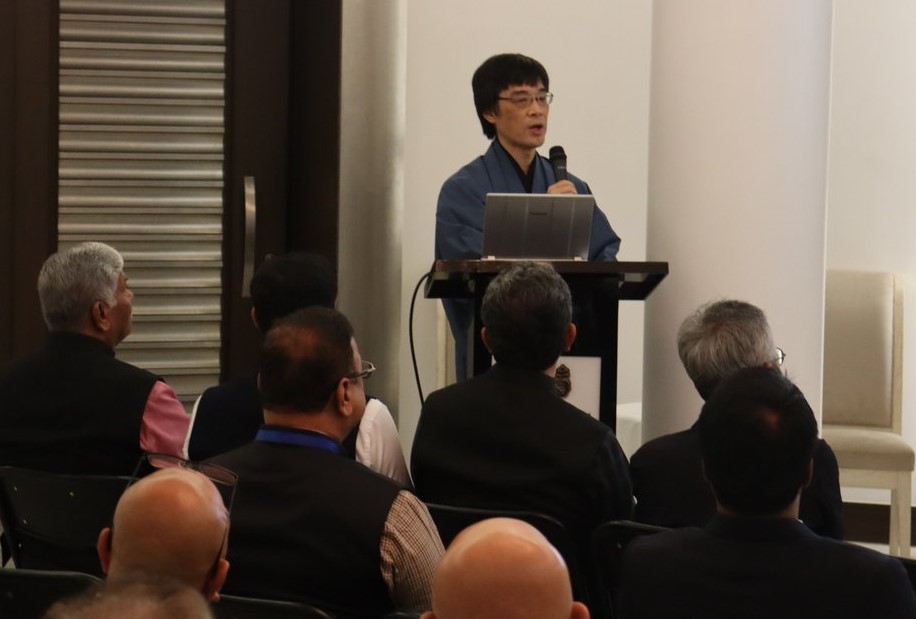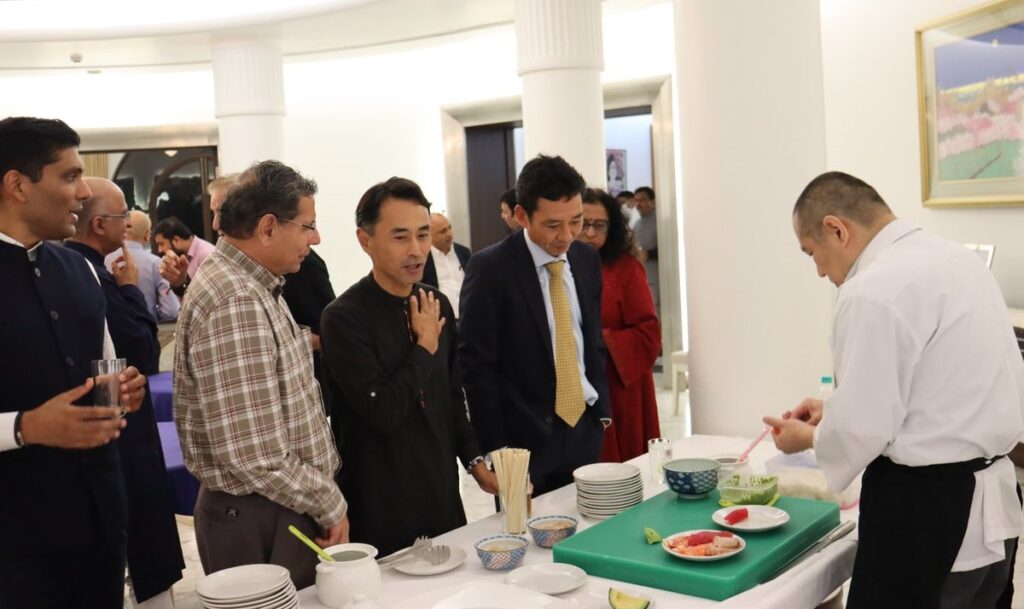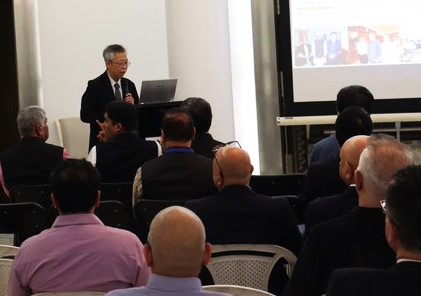Japan can help India become World No. 4, it must imbibe Japanese-style management: Prof. Takahiro SATO
By Himangini Puri
MUMBAI: Japan can help India become the world’s 4th-ranking economy, and to achieve this milestone, both nations should work together. India must pick up clues from Japanese-style management that accords the high importance of incorporating values of inclusivity and offers a level playing field to workers at the workplace.
This piece of advice came from Prof. Takahiro SATO of Kobe University as he delivered a lecture basis his research paper on India at the Consulate General of Japan in Mumbai on Tuesday. The Consul-General Dr. FUKAHORI Yasukata hosted the lecture. KANEKO Toshihiro, Chief Consul, was also present on the occasion.

While referring to his recent research paper “Past Trends and Future Prospects of Japanese Companies in India”, the Vice-Chair for the Research Institute for Economics and Business Administration at Kobe University, Prof. SATO said, “To make India the 4th largest economy in the world, India and Japan have to work together and it will happen. In order to expedite economic growth, India must learn from Japanese-style management which incorporates values of inclusivity and equality for all workers in the company.”
He said that statistically, the data drawn from 40 Japanese manufacturing companies in India proves that making blue-collar workers multi-skilled has a positive correlation with productivity.
Dr. Sato notes that in India, the work culture is top-down, meaning that there is little to no in-house breeding. When looking for senior-level employees, Indian companies prefer hiring from outside rather than to educate and equip their blue-collar employees for merit-based promotions. The Japanese companies, on the other hand, give equal opportunity to all the employees by focusing on making workers multi-skilled. This means that one worker will have a minimum of 2-3 jobs as opposed to just one. Jobs such as maintenance and inspection need not be given to a separate set of workers. This makes them versatile and provides them with a new set of skills.
In an interview with Asian Community News (ACN) Network, Dr. Sato, said, “Another hurdle is the trade unions, who do not necessarily care about the blue-collar workers and have their own agendas in mind. This makes it increasingly difficult to bridge the gap between blue- and white-collar workers.”
 The Human Resource departments of Japanese MNCs in India are usually headed by Indian people who bridge the language barrier between managers and employees. “This makes them an arbitrator as opposed to helping reinforce Japanese work culture”, remarks Dr. Sato. He also mentions that due to human nature, the information is often manipulated and conveyed in a manner suitable to the HR head.
The Human Resource departments of Japanese MNCs in India are usually headed by Indian people who bridge the language barrier between managers and employees. “This makes them an arbitrator as opposed to helping reinforce Japanese work culture”, remarks Dr. Sato. He also mentions that due to human nature, the information is often manipulated and conveyed in a manner suitable to the HR head.
The paper aimed to observe the economic activities of Japanese-affiliated companies operating in India during the period from 1995 to 2017 by using company data drawn from The Basic Survey of Overseas Business Activities which was provided by the Ministry of Economy, Trade and Industry (METI).
The first half of the lecture focused on the growth of Japanese companies in India between those years and showed a notable increase in foreign investment, equity, capital, and employment. In 1995, the capital invested by Japanese MNCs was ¥20 billion ($135 million), and in 2017, it prolifically rose to ¥1.5 trillion ($10.1 billion). The number of Japanese MNCs in India has also grown from 45 to 563 since 1995. This level of scaling has only been possible due to the Japanese work culture proving productive and being welcomed by Indian employees. The ‘Make in India’ and ‘Self-reliant India’ initiatives have also been beneficial for manufacturing companies to set up bases in India. As a result, the MNCs have provided 2.5 lakh new jobs in India.
The lecture addressed these crucial questions and was met with comments and queries from various business owners, manufacturers, and Indian government officials in Mumbai. They concurred with the findings and posed questions regarding the probability of Japanese companies benefiting from Indian work culture as well—to which he responded, “India’s adaptability is like none other. The employees here can adapt to any situation. This is why Japan and India are a good match.”



